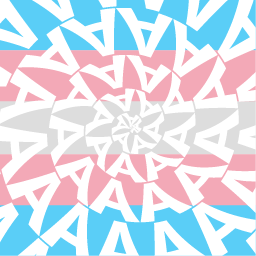I don’t like ma’am, but mostly because somewhere along the line it stopped being miss (unless I’m trying to buy something, and then it’s often still miss). Ma’am is a reminder that I’m old :P
So sorry for the dumb question, but is ma’am tied to age? I’ve always used it on trips because I was taught in school that ma’am is correct formal English 😅
Basically, ma’am and miss are used for women in general, but miss is never used to mean “older woman” and ma’am is never used to mean “young woman”
Ok thank you :D
Is one better to use in a business context? Or is there something more gender neutral that sounds natural?In a business context, ma’am is fine. I don’t think a lot of women (especially younger women) love the term, but it’s not insulting or anything. It’s just a reminder of age
I think different regions have their own customs, since there isn’t really any universal standard for this sort of thing. From what I’ve seen living in New England, most people don’t use the honorifics at all and just refer to people by name or as “you”. The only time I get called “sir” or “ma’am” is by older people working in retail (and half the time they get it wrong, which never feels good)
I work retail in a state in New England. My experiences have been getting sirred (and occasionally ma’amed when I am turned away, which is better than nothing) by customers asking for directions all the time. Constantly, and not just by older folk. Maybe it’s a cognitive bias that I’m not recognizing, and my area is more like you described and I’ve just been unlucky, but I hate it so much either way.
I also don’t go out much, so I might be biased lol
OH MY GOD.
“M’LADY” IS ACTUALLY APPROPRIATE IN THIS SITUATION.
What if I don’t have a shitty hat to tip?
Then you’ll have to stop using deodorant.
I mean I call my woman friends “man” or “dude” or “guys” all the time… those words have become fairly gender neutral in casual conversation. But I try to be a lot more careful around trans women, they deserve to know I believe in them.
They’re gender neutral in the same way “man” can be used instead of “human”. Which is to say it’s not gender neutral at all, it’s a sexism so deeply entrenched that it’s completely normalised and often invisible. It’s called “male as the default”.
So, even if you don’t see the issue, it is there, and many people are not ok with that, so you really should make sure that your gender diverse friends are genuinely comfortable with the terms, because it’s often hard for trans folk to push back against their friends using terms like that, for fear of being seen as difficult/precious etc.
Yeah no worries, my friends are cool with it. If they weren’t obviously I’d say something else.
You wouldn’t really see these kinds of issues with my friends anyway. Because Spanish is inherently a gendered language, it’s not a deep cultural issue like it is to English folks.
Keep in mind that grammatical gender !/ gender. So, you can use Ella for men, because “Ella (la persona) es bonita”
Ah, por supuesto! Pero, lenguaje de genero neutro es un poco dificil.
Pronouncing “ma’am” with the vowel sound from “are” might help reduce the ambiguity.
So… mom?
The British pronunciation, which is closer to how North Americans say “mom” except with crisper consonants, works.
I use ‘man’ kinda like ‘guy’ sometimes and my biggest fear is to accidentally refer to one of my friends (or any mtf) as ‘man’.
That’s even worse, she’d think you called her “Adam”





